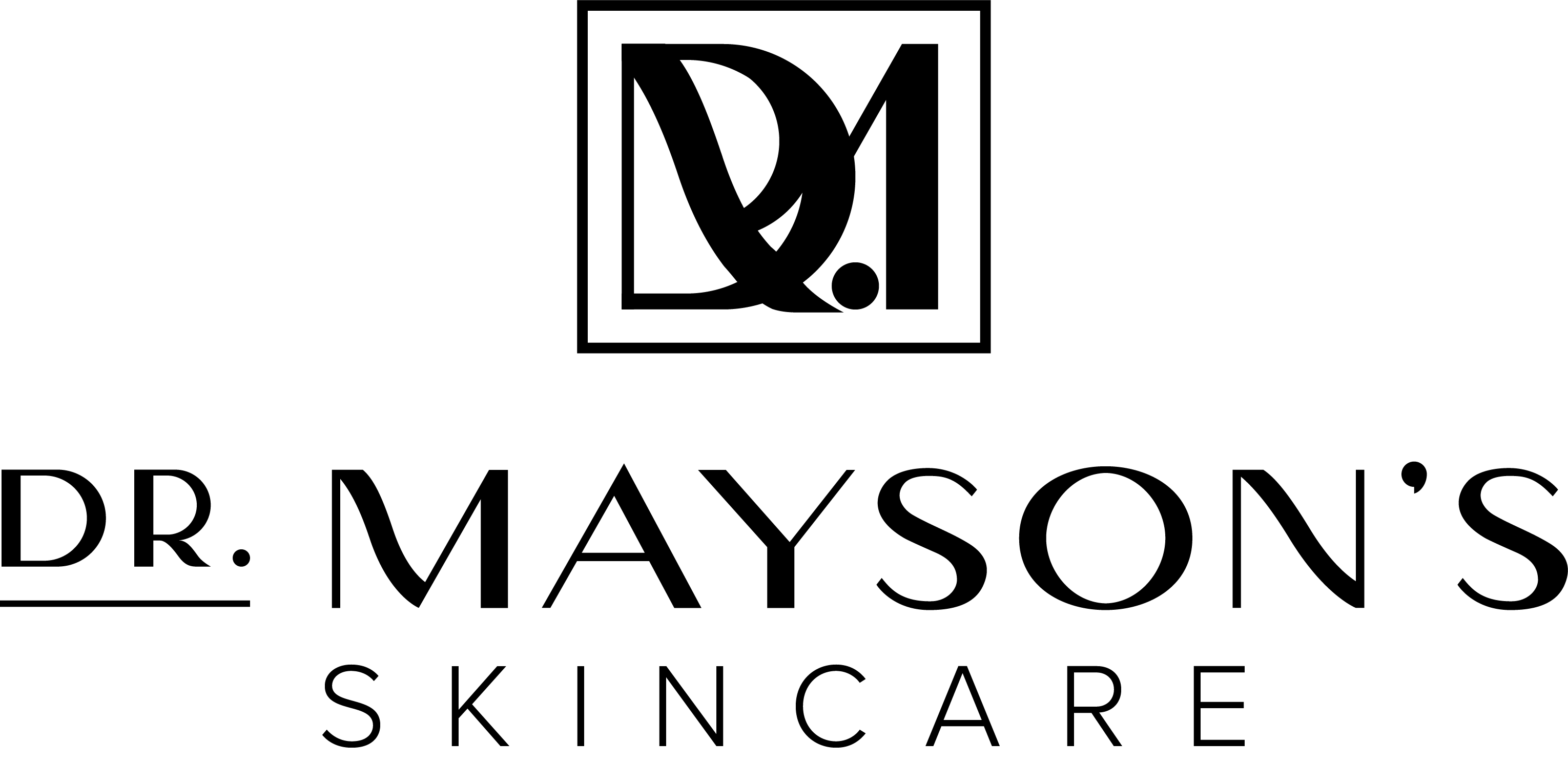DR MAYSON'S SIGNATURE
Anti-Acne Program
FREQUENTLY ASKED QUESTIONS
Acne FAQs
Acne is caused by a combination of genetic, hormonal and local factors acting on the oil-producing sebaceous glands of the skin. When the pores become clogged, their natural oils cannot escape, and the normal bacteria living within the glands then start to multiply and produce the inflamed lesions we see as pimples.
Although there is no proof that certain foods such as dairy products, chocolates, and sweets can be a primary cause of acne, some dietary factors are believed to be able to worsen acne.
There is no proof that eating these can be the cause of acne but there appear to be some suggestions that certain foods can affect the severity of existing acne.
Although stress does not directly cause acne, it certainly can worsen or trigger it. Under stress, the body releases more cortisol hormone from the adrenal glands. Cortisol increases the production of oil by the skin’s sebaceous glands, and this can then either trigger an outbreak or worsen existing acne.
Absolutely! Using the wrong makeup can definitely worsen existing acne, or even trigger it. Large-size molecular oils in some makeup products can clog the skin’s sebaceous glands and prevent the normal escape of oil onto the skin surface. Normal resident bacteria in the blocked oil glands then multiply and produce the inflammation we see as acne.
The makeup products that are notoriously responsible for blocking pores are oil-based foundations and powder compacts. So, only use foundations labelled as ‘oil free’ or ‘100% water based’, and totally avoid powder compacts. Use loose dusting powder instead.
The best sunscreens for acne-prone skin are those in the form of a lotion, milk, or gel. Other forms of sunscreen such as oils, foams, and creams can block the pores and trigger or worsen acne.
Although most acne occurs in teenagers, adults too can get acne. Some adults continue to get acne past their teenage years and even into their 30s and 40s.
Adult-onset acne, on the other hand, is far less common and can be the result of:
- hormonal imbalance around the time of menstruation, pregnancy, or menopause.
- pore-clogging skincare products.
- a side-effect of some medications.
- a symptom of an undiagnosed underlying medical condition.
The best skincare routine for acne-prone skin can be summed up by the well-known saying ‘less is more’!
Most acne sufferers only need a few essential skincare products plus an effective anti-acne treatment that will target the primary causes of acne.
So, unless you have very severe acne that requires a prescription medication, most mild and moderate acne will respond to a skincare routine of:
- A non-comedogenic cleanser and non-comedogenic moisturiser that won’t block the pores.
- An effective exfoliant such as Dr Mayson’s Anti-Acne Program to unblock clogged pores.
- A sunscreen lotion, milk, or gel – not an oil, foam, or cream that can block the pores.
- Oil-free foundations only.
- No powder compacts, loose dusting powder only.
Remember that acne is not the result of unclean skin, so there’s nothing to be gained from excessive washing or scrubbing of the face. In fact, over-zealous washing can actually do more harm than good by compromising the skin’s natural barrier, robbing the skin of essential moisture, and causing dryness and irritation.
Teenage acne occurs when the levels of circulating hormones increase during puberty and adolescence and boost oil production by the skin’s sebaceous glands. If this excess oil is unable to escape due to the pores being clogged, bacterial multiplication occurs, and acne lesions are produced.
Adult acne, on the other hand, is rarely hormonal in origin, and is usually less severe. Adult acne is usually managed successfully with topical treatments and adjustments to skincare products being used.

